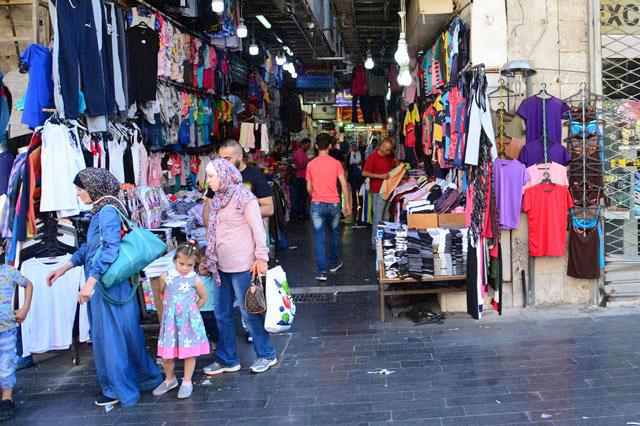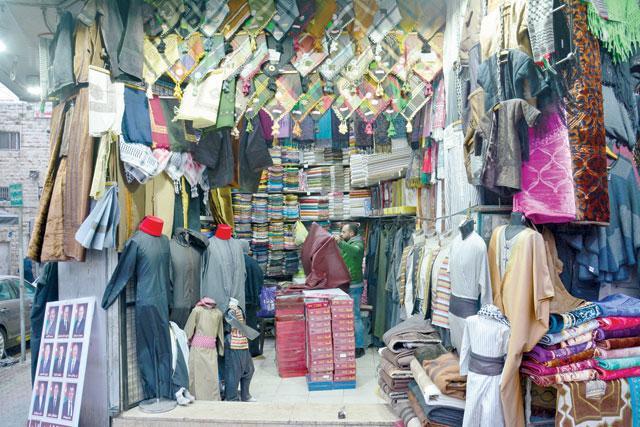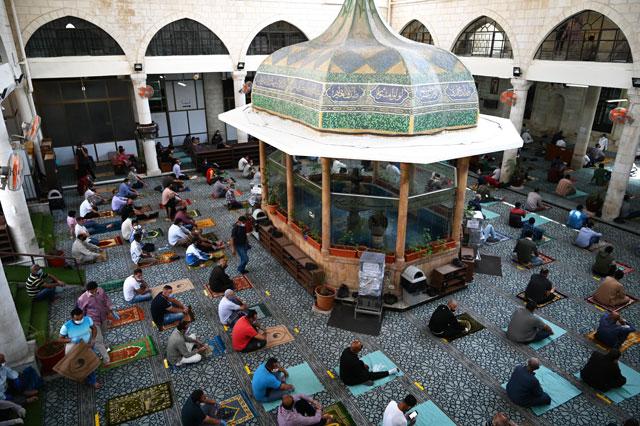You are here
Rent spikes speed demise of clothing, footwear shops — textile syndicate
By Bahaa Al Deen Al Nawas - Sep 05,2019 - Last updated at Sep 06,2019

The clothing sector suffers from the repercussions of implementing the amended Landlords and Tenants Law for 2013, according to the Textile and Readymade Clothes Syndicate (Photo by Amjad Ghsoun)
AMMAN — Around 800 clothing and shoe shops have shut down during the past five years due to an increase in rent, the Textile and Readymade Clothes Syndicate said on Thursday.
The clothing sector suffers from the repercussions of implementing the amended Landlords and Tenants Law for 2013, the president of the syndicate, Muneer Deyeh, told The Jordan Times.
Five years after its implementation, the negative effects of the law surfaced, he said, adding that more than the 800 out of the 15,000 shops in the Kingdom might close soon.
Deyeh noted that the Landlords and Tenants Law of 2013 stipulated that any rent contract signed after the year 2000 allows landlords to make the renter leave once the contract is over, and puts no cap on the rent, leaving the negotiations to the landlords and the tenants, which has allowed landlords to impose very high rent.
The increased rent does not abide by laws or regulations, which leaves tenants with shops that might have become famous and known in an area with only two possible choices: Either leave because the landlord wants to rent out to someone else, or agree to pay a higher rent imposed by the owner in order to not lose everything they worked hard for, Deyeh explained.
Deyeh said that thousands of shops have agreed to pay higher rents but then are not able to keep up with the cost, so they can neither quit the contract nor can they abide by it, which will “definitely lead to closing the shop”.
“No profit, high operational costs, high rent fees, debt and no movement in the sector” is causing uncertainty and instability, Deyeh said, noting that oftentimes the rent alone comprises over 60 per cent of overall fees and costs for shopkeepers.
The syndicate president called for core amendments to the Landlords and Tenants Law in a way that re-evaluates the shops' rents and brings a new draft that is compatible with the sector's conditions.
He also urged landlords and shop owners to "have some mercy and humanity" on the merchant tenants and give them feasible rents as a way of cooperation.
Deyeh told The Jordan Times in mid-August that clothing sales during Eid Al Adha went down by 50 per cent compared to the same period in 2018.
In an interview with The Jordan Times in July, Deyeh outlined that Jordan’s taxes and customs on clothing and shoe imports are “the highest not only in the region but also in the whole world”.
In light of the many challenges, Deyeh repeated his call for the government to “take action before this vital sector faces even more grave losses”.
Related Articles
AMMAN — In 2021, the pandemic continues to take a heavy toll on the Kingdom’s clothing sector, according to Jordan's Textile and Readymade C
AMMAN — A representative of the clothing sector has demanded that the government reduce the sales tax in the sector from 16 to 8 per cent, e
AMMAN — After business hours were expanded and curfew hours were reduced on Saturday following two-and-a-half months of curfew, people and w

Opinion
Apr 09, 2025
Apr 08, 2025
- Popular
- Rated
- Commented
Apr 08, 2025
Apr 09, 2025
Newsletter
Get top stories and blog posts emailed to you each day.
















